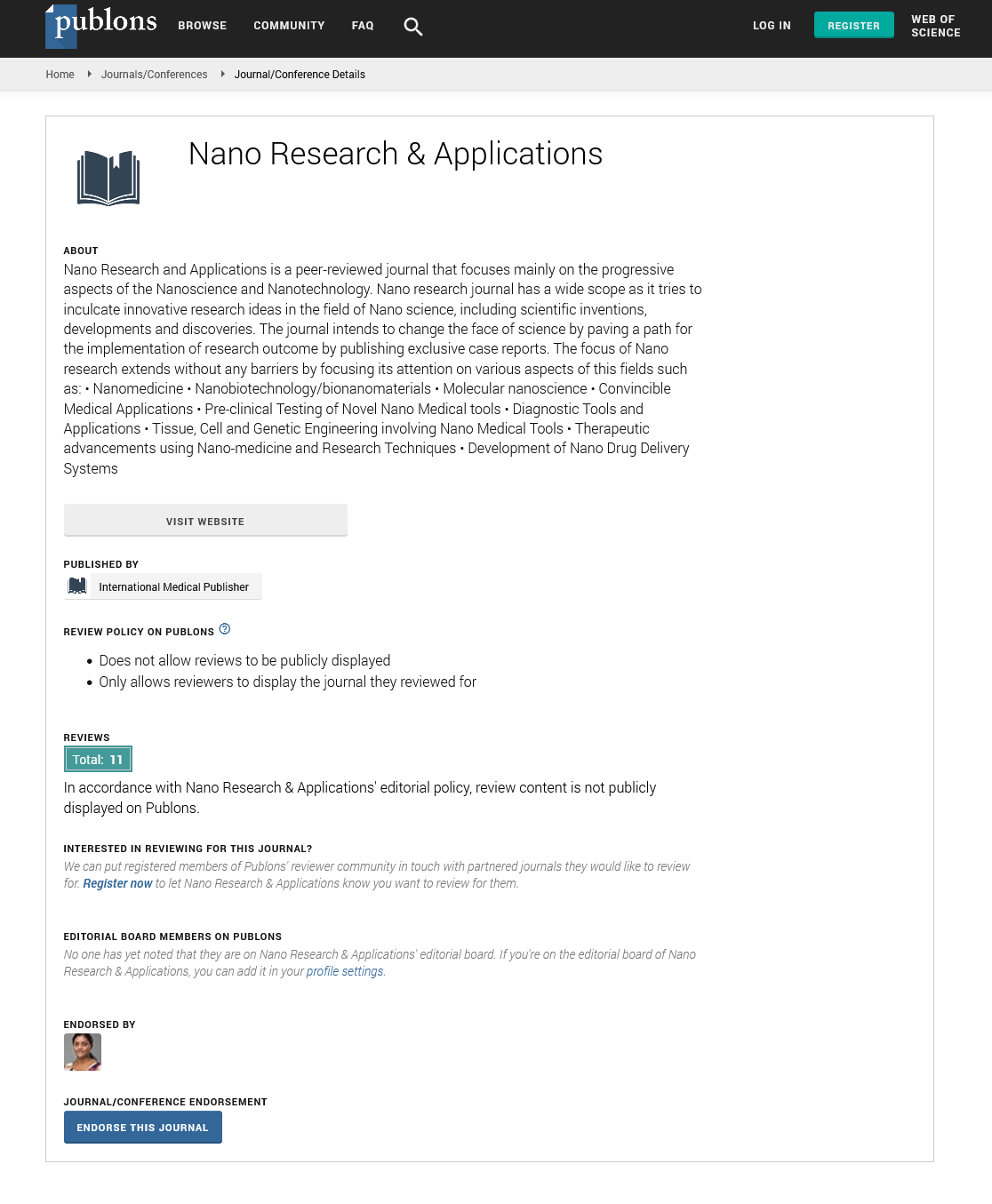ISSN : 2471-9838
Nano Research & Applications
Nanosensors: an improved tool for efficient reservoir characterization and oil exploration
EuroSciCon Conference on Advanced Nanotechnology
April 18-19, 2019 | Paris, France
Shilpa K Nandwani, Mousumi Chakraborty and Smita Gupta
Sardar Vallabhbhai National Institute of Technology, India
Posters & Accepted Abstracts: Nano Res Appl
Abstract
Nanosensors have recently attracted the oil and gas industries for acquiring a panoramic insight of the oil reservoirs. Such nanodevices are found to be advantageous as compared to the conventional mechanical, electrical and optical sensors used in reservoir characterisation and oil exploration. The indispensable need for developing sensing devices that work efficiently under high-pressure/high-temperature conditions of the reservoir has paved way for nanosensors. This new class of nanomaterials have overpowered the conventional sensing techniques. Conventional sensing techniques are incapable of acquiring data at a large distance from the injection point. Recent developments have shown that carbon and silicon based nanosensors can be used in reservoir characterization and hydrocarbon detection. Moreover nanosensors in combination with certain conventional monitoring systems are anticipated to substantially improve the imaging outcomes thereby assisting the oil and gas industries in tuning the oil recovery methods for profitable outputs. Nanosensors provide accurate 3D reservoir characterization and even slight improvement in the sensing capability of hydrocarbon detection and insitu chemical compostion will produce exponential benefits. This paper provides an overview of how nanosensors prove to be more efficient than the conventional sensing systems used for reservoir characterization and hydrocarbon detection by the oil and gas industries till now.
Biography
E-mail:
sknandwani80@gmail.com
Google Scholar citation report
Citations : 387
Nano Research & Applications received 387 citations as per Google Scholar report
Nano Research & Applications peer review process verified at publons
Abstracted/Indexed in
- Google Scholar
- China National Knowledge Infrastructure (CNKI)
- Directory of Research Journal Indexing (DRJI)
- WorldCat
- Publons
- Secret Search Engine Labs
- Euro Pub
Open Access Journals
- Aquaculture & Veterinary Science
- Chemistry & Chemical Sciences
- Clinical Sciences
- Engineering
- General Science
- Genetics & Molecular Biology
- Health Care & Nursing
- Immunology & Microbiology
- Materials Science
- Mathematics & Physics
- Medical Sciences
- Neurology & Psychiatry
- Oncology & Cancer Science
- Pharmaceutical Sciences
